SUMMARY
This is AI generated summarization, which may have errors. For context, always refer to the full article.
![[OPINION] Life is unfair](https://www.rappler.com/tachyon/2021/07/IMHO-life-is-unfair-1280.jpg)
When was the first time you had an inkling that life was unfair? For me, it wasn’t when I realized that schools were ranking us based on grades and abilities, or when I wanted to become a doctor just because the doctor’s office had air-conditioning. For me, it was all because of Santa Claus.
One day I suspected that Santa was giving different gifts according to how rich you were. My wealthy classmate in grade school got a Nokia 7610 or whatever Nokia phone was cool back then. The poor kids in our neighborhood, meanwhile, got junk food in small packets. In my mind, I ranked all our gifts from Santa from the most expensive to the least, from the most desirable to the least, trying to grasp the then-elusive concept of social and income status. Junk food was always in the “least” category.
My Santa memory is stitched with another, which involves an uncle of mine. In a family gathering, this uncle spoke about how we should learn early on that “life is unfair.” I don’t remember the context of why he said this, but he said the words in a matter-of-fact way, and they’ve stayed with me ever since.
I would think of these words whenever I sensed some sort of inequality in a given situation. Should one do something about the unfairness or resign oneself to fate? I would also mull over the saying, “It is not your fault if you were born poor, but it is if you die one.” On one hand, this gives you the idea of agency, that you can take over your life and turn it around. But on the other hand, can people really catch up, in general, when others have sprinted ahead of you, and when it can feel like the rules of the world are based on a zero-sum game?
The economists Raj Chetty, Nathaniel Hedren, and Lawrence Katz (2016) examined the impact of the Moving to Opportunity experiment in the US, in which randomly selected families living in high-poverty areas were given housing vouchers to relocate to lower-poverty neighborhoods. Their study found that doing so increases college attendance and lifetime earnings, but the catch is that these gains were only significantly felt by the children (defined as those under the age of 13), and not by the parents – not even by the adolescents at the time of the relocation. And so, in this study, people can catch up, but as long as you start really young. I wonder what it is like here in the Philippines, on average.
I am thinking of the unfairness of life again because of a recent viral Twitter thread on the University of the Philippines’ roster of summa cum laude graduates. The tweets claim that most of the summa cum laude graduates are from rich families, that they did not have to work to put themselves through school. The initial tweet has since, as of this writing, garnered at least 8,000 likes and 1,000 retweets.
One of my friends also showed a graph from Bloomberg in which high-income students with low test scores had better odds of graduating from college than low-income students with high test scores, which echoed the point of the tweets on privilege.
And we do not only see this power of money in education. We hear stories everywhere of how socio-economic status enables so many easy passes. We hear about employers who favor rich employees and bypass, or worse, look down on, others who lack the finesse, the connections, and the prestigious last name. Somehow there is always an extra seat for the rich and famous. On a larger scale, we are seeing now how richer countries are opening up despite the ongoing pandemic, preparing to get back to “normal” while the poorer ones are left behind. Then, aside from socio-economic status, there is the unequal distribution in talent, in appearance, and other aspects, which will take another essay to think about.
This unevenness of lived experience almost inevitably leads to comparisons with our peers. Thanks to social media, you know what everyone’s doing and who is doing well. This dangerously breeds envy, self-pity, and that “keeping up with the Joneses” mentality. The Germans have a word for it: “erfolgtraurigkeit,” which means success-sadness; i.e., the success of the people around you puts a spotlight on your failure. Erfolgtraurigkeit is the opposite of schadenfreude.
Thus, the birth of posts online reminding us to refrain from comparing ourselves with others because we have our own timelines. Filipinos, at times, take this comparison mentality lightheartedly and only comment sana all with a laughing emoji. As for me, my uncle’s words would sometimes resonate: Life’s unfair. Deal with it.
So is life fundamentally unfair? What can we do? Some societies have reorganized themselves to be more equal, though some do this to the point that they take away individual freedoms. At the end of the day, Orwell’s wise words are a reflection of these kinds of societies: all animals are equal, but some animals are more equal than others.
Maybe begin with awareness. Awareness is the start of doing. Awareness of privileges. Awareness that, to an extent, I can do something to alter my fate, to widen my worldview. Awareness that I can help lift other people up (though this is next-level and is in need of a lot of willpower and energy). I am glad that the youth today, at least those who are opinionated online, are sensitive to these issues, though some are overtly so, or are this way just for the retweet.
I am optimistic, nevertheless, because this can only mean that there is that desire for a better world, one in which there are no Santas who discriminate against you based on your income status.
I should start with my original un-equalizer, then. Down with your unfair gifts, Santa! – Rappler.com
Geli Juani, 29, is the recipient of the Fr. Bienvenido Nebres SJ Scholarship, and will take her Masters in Global Human Development at Georgetown University, Washington DC starting this fall. While there, she still plans to vote in the upcoming 2022 elections.
Voices features opinions from readers of all backgrounds, persuasions, and ages; analyses from advocacy leaders and subject matter experts; and reflections and editorials from Rappler staff.
You may submit pieces for review to opinion@rappler.com.
Add a comment
How does this make you feel?
![[OPINION] Stop the inequality virus!](https://www.rappler.com/tachyon/2021/01/inequality-virus-january-27-2021.jpg?fit=449%2C449)
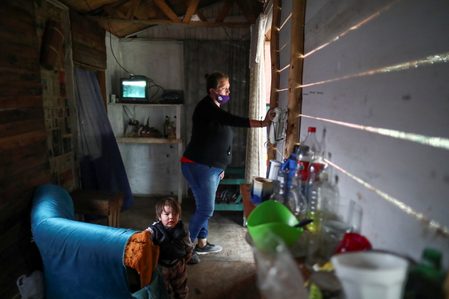
![[PODCAST] I’ve Got An Opinion: You don’t need to be from a ‘Big 4’ school](https://www.rappler.com/tachyon/2020/07/ive-got-an-opinion-sq-2.jpg?fit=449%2C449)
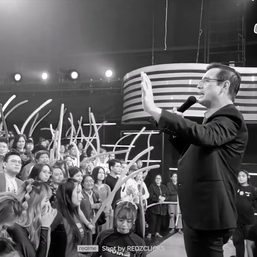
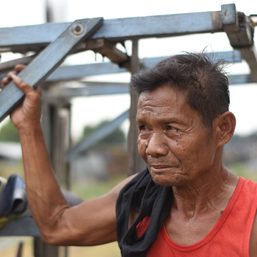
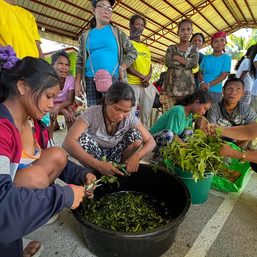
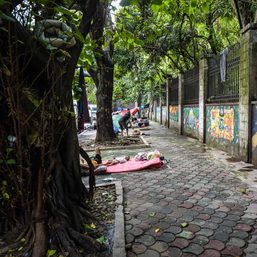
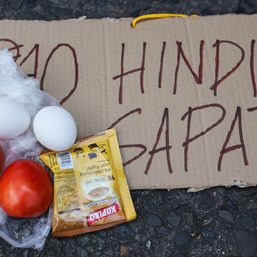
There are no comments yet. Add your comment to start the conversation.